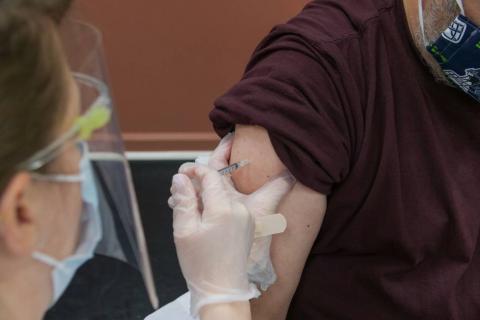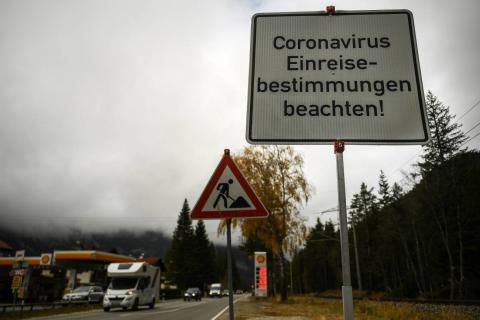For Ángela Domínguez García, Professor of Preventive Medicine and Public Health at the University of Barcelona, "we must not forget that the pandemic is a global problem, and that the solution will befound globally, combining vaccination of the larger population in all countriesand non-pharmacological prevention measures, which undoubtedly contribute toreducing transmission".
"Vaccines clearly prevent severe forms of the disease, hospitalizations and deaths", she adds, but "not all the population is vaccinated, nor are the vaccines effective in 100% of the people to whom they are administered".
Will what is happening now in Germany happen in Spain?
"The waves in each country usually have their own characteristics, depending on the variant circulating, the vaccination coverage in the different groups and the follow-up of non-pharmacological prevention measures", responds Domínguez García, member of the Spanish Society of Epidemiology.
In her opinion, "if in our country coverage is increasing and non-pharmacological prevention measures are followed by the majority of citizens, although the variant circulating in both countries is the same, we can expect the impact of the new wave to be less in Spain than in Germany".
This is a pandemic, what happens in other countries will also arrive here
Teresa Ruiz Cantero, Professor of Preventive Medicine and Public Health
Teresa Ruiz Cantero, Professor of Preventive Medicine and Public Health at the University of Alicante, also hopes that "mass vaccination will protect us" from critical situations, such as those experienced in other stages of the pandemic. But she reminds us: "This is a pandemic, what happens in other countries will also arrive here".
In our favor, in addition to almost 90% of the population having the complete dosage, is the fact that the climate in Spain still allows outdoor life, points out Ruiz Cantero: "The cold reaches us later".
For when the social life moves mainly indoors, this expert appeals to what has been learned during these months: "We know that in summer, with more time outside, we will not need the mask so much; it will be the other way round in winter".
The most comprehensive study on masks corroborates their effectiveness
A constant source of uncertainty for those responsible for managing the pandemic, and for the public itself, has been to determine how much non-drug measures actually protect against infection. For the first time, a meta-analysis - a work that analyzes the results of several studies on atopic - evaluates the available evidence on the efficacy of masks, interpersonal distance and hand washing, and concludes that these measures are indeed" associated with a reduction in the incidence of covid-19".
The lack of research on the efficacy of behavioral measures is considered one of the great gaps in pandemic science
The study, which pools the results of eight papers - after evaluating more than seventy - is published in BMJ. Its conclusion - explained graphically here - may seem obvious, but the fact is that the lack of research on the efficacy of behavioral measures is considered one of the great gaps in pandemic science.
Lack of studies on efficacy of behavioral measures
The editors of BMJ state in an editorial, "Although abundant trials of vaccines and drug treatments have been conducted during the pandemic, much less has been done to assess the effects of social and public health measures." The lack of "good research" in this area is for BMJ "a pandemic tragedy".
The experts consulted fully agree. "This study is valuable because it is the first to analyze in depth the efficacy of behavioralmeasures," says Ruiz Cantero, "but it also highlights the deficiencies in research; it tells us: 'this is where we are and this is wherewe need to go'.
In particular, says Ruiz Cantero, the study highlights the need for studies that measure indicators in the same way, to make comparison possible.
The study highlights the need for studies that measure indicators in the same way, to make comparison possible
There is also a need for prospective studies designed so that the individual effect of each of the protective measures can be observed in isolation. The authors of the paper now published in BMJ acknowledge that this has now been practically impossible.
Combined effect of several measures
Ángela Domínguez agrees: "The study by Stella Talic and collaborators jointly analyzes the results of studies published by different authors on the effectiveness of non-pharmacological prevention measures, such as hand hygiene, the use of masks and keeping physical distance, and concludes that these measures are associated with a reduction in the incidence of covid-19 cases".
"The main problem in specifying the contribution of each of these measures is that they are generally not adopted separately, but at the same time by the same people (...). It would be interesting to have studies analyzing how several of these measures together influence the reduction in the incidence of covid-19", adds Ángela Domínguez.
This researcher recalls that the WHO recommends "promoting studies that contribute to clarifying the relative importance of the different prevention measures".




